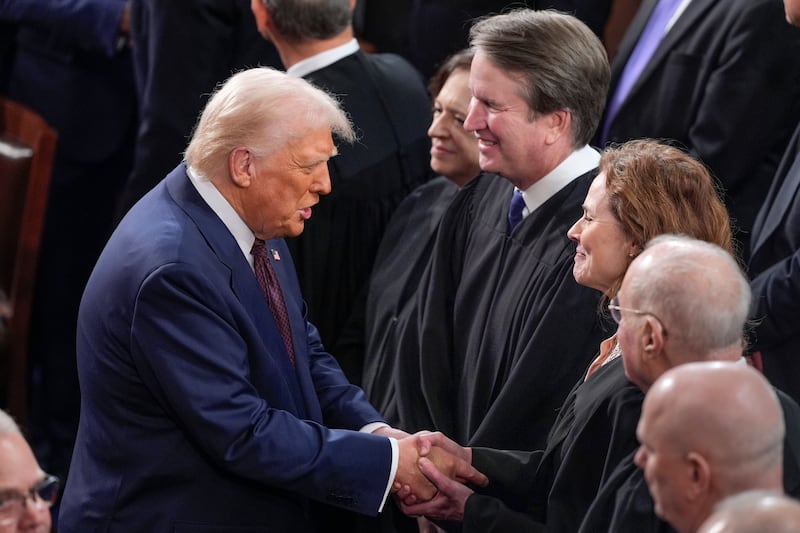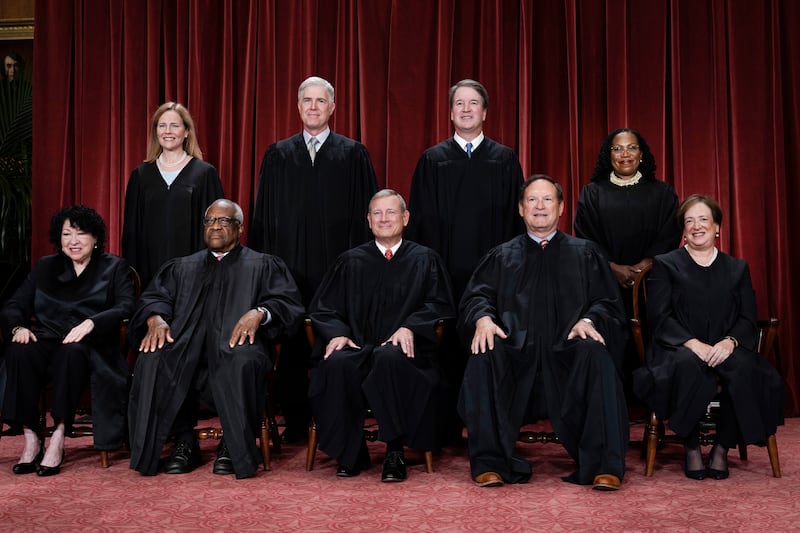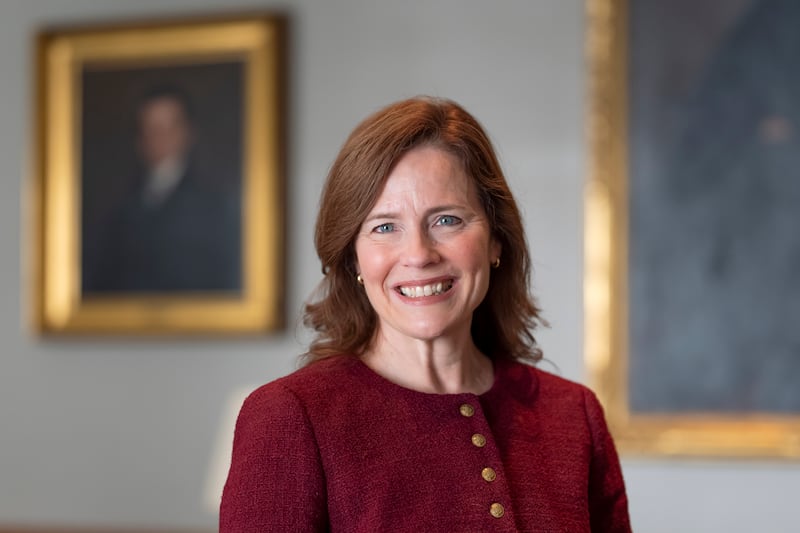Supreme Court Justice Amy Coney Barrett, who has faced criticism that her Catholic faith shapes her judicial philosophy, addressed the issue in a recent interview with CBS News.
When asked by journalist Nora O’Donnell whether her religious beliefs affect her decisions as a justice, Barrett pushed back against the idea.
“It does not affect how I vote,” said Barrett. “And I think that’s a misconception about me.”
It’s a misconception that was present during her confirmation hearings, she said.
She went on to clarify, “But I was very clear then, and I am very clear in the book, and I will be clear with you now that — no, my faith does not affect the content of my decisions.”
If anything, Barrett said, her faith helps her to “maintain my commitment not to let the faith” interfere with her decisions.

Barrett explained that, like every justice, she swore an oath to uphold the Constitution and the laws of the United States. That oath, she noted, reflects the country’s pluralistic foundation — unlike some European nations, she said, the U.S. has no state religion.
“The First Amendment guarantees us freedom of religion, freedom of speech, which means we are a country where we have a range of different religions, no religion at all, and certainly different opinions,” she said. “It is emphatically not my job to impose my belief system on anyone else.”
Ahead of her new book “Listening to the Law: Reflections on the Court and Constitution,” Barrett sat down with CBS News, in which she defended the Supreme Court as nonpolitical, rejected the idea that justices enable presidents or Congress, and explained why she avoids weighing in on hypotheticals outside of cases.
Barrett also affirmed her respect for Justice Ketanji Brown Jackson despite sharp written exchanges, recalling hosting Jackson for a welcome dinner when she joined the court.
On Roe v. Wade, Barrett said that the Dobbs decision returned abortion to the states, arguing that such questions belong to the democratic process, not the court.
During her 2017 appeals court confirmation hearing, Barrett faced questions about whether her Catholic faith might influence her rulings. Then-Sen. Dianne Feinstein told her that “dogma and law are two different things” and suggested that Barrett’s writings made it seem “the dogma lives loudly within you,” raising concerns about her impartiality on major issues.
In her book, Barrett writes about the criticism she’s faced as a person of faith in her profession, Deseret News reported.
“Some suggest that people of faith have a particularly difficult time following the law rather than their moral views. (I faced that criticism as a Catholic, most sharply when the Senate Judiciary Committee conducted a hearing to consider my nomination to the Seventh Circuit.) I’m not sure why.”
“Fortunately for the health of our country, people of faith are not the only Americans with firm convictions about right and wrong,” Barrett wrote.
“Nonreligious judges also have deeply held moral commitments, which means that they too face conflicts between those commitments and the demands of the law.”



